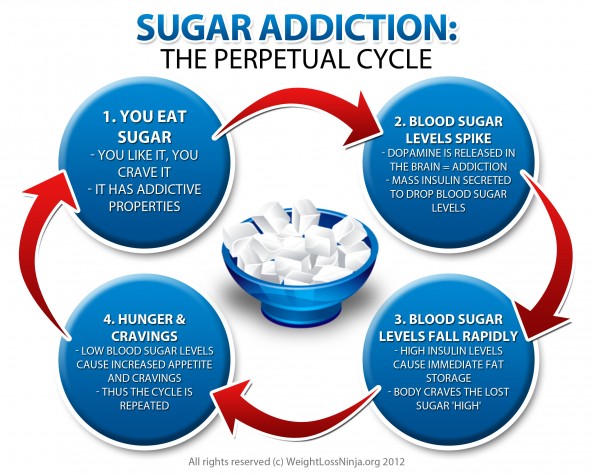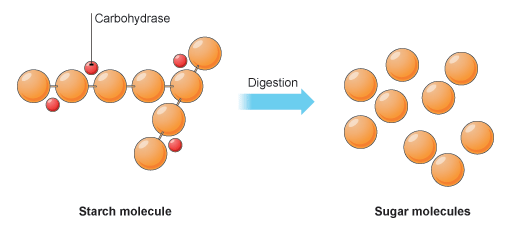Psalm 119:103 How sweet are your words to my taste, sweeter than honey to my mouth.[New International Translation]
Summary
With 176 verses, Psalm 119 is the longest chapter and the longest psalm in the Bible. Psalm 119 is an alphabetic acrostic (i.e. composition) psalm. The first eight verses of the psalm all begin with the letter “aleph,” the first letter of the Hebrew alphabet. The next eight verses begin with “beth,” the second letter of the Hebrew alphabet, and so on. Psalm 119 covers the entire Hebrew alphabet, which is one of the reasons why the Psalm is so long.
Verse 103 of Psalm 119 is under the Hebrew letter, “mem.” The verses under “mem” contain verses that express “the love of God’s law”--- the sweetness of GOD’s WORD. To the writer, not even the best and the sweetest honey in all the land compares to how sweet THE WORD.
Sugary Sweets
Many Americans are addicted to sugary sweets. If you grow up in America, there is an endless succession of “sweet days.” We are encouraged to consume sweets on most American holidays: Valentine’s Day, Mother’s Day, Easter, Halloween, Thanksgiving and Christmas. There are the birthday parties, weddings, office parties, athletic gatherings, retirement parties, wedding receptions, graduation parties and the numerous church events. There are the sugared cereals, donuts, muffins, pastries that many consume just to start their day. Throughout the day, Americans consume a number of sugar sweetened drinks: sodas, coffee, juice, milkshakes and other sugared laced drinks. If you enter any grocery store, corner store, drug store or convenience store in America, you generally have to walk the candy display gauntlet before you can pay your bill and exit the store. When you consider all of the above, it is not surprising that most American have very few “non-sweet” days.
Like alcohol, sugary sweets are profitable and heavily marketed. However, unlike cigarettes and alcohol, our government will not protect the American public, including our children, from “sugar addiction.”
Our Brains on Sugar
According to researchers in a 2012 article in the journal Nature, sugar is a toxic substance and should be regulated just like tobacco, alcohol or drugs. Researchers have pointed out that too much sugar can make us fat, wreck havoc on our liver, muck up our metabolism, impair our brain and leave us susceptible to diseases like heart diseases, diabetes and cancer. See, “Your Brain on Sugar,” www.webmd.com. When researched performed brain scans on subjects eating something sweet, the scans seem to resemble those of drug addicts. When tasting sugar, the brain lights up in the same regions of the brain, as if a person were an alcoholic drinking a bottle of gin. Dopamine—the reward chemical spikes and reinforces the desire to have more. Because sugar also fuels the calming hormone Serotonin, in times of stress, dieters will often binge. Id.
Some describe sugar addition like being caught in a vicious cycle:
Some researchers believe sugar increased the aging process, just like tobacco:
Sugar causes premature aging, just as cigarettes and UV rays do. With young skin (generally under 35), when skin support structures collagen and elastin break down from sun or other free-radical exposure, cells repair themselves. But when sugar travels into the skin, its components cause nearby amino acids to form cross-links. These cross-links jam the repair mechanism and, over time, leave you with premature wrinkles.
See, “Your Brain on Sugar,” www.webmd.com.
Treat Sugar Like Any Other Addiction
It is important to be diligent, reduce your intake and be aware of the problem.
A. Educate Yourself About the Sugar Content of What You Eat
Most products identify their sugar content in terms of grams. For example a 12oz can of Coca Cola contains 39 grams of sugar. A 20 oz bottle of Mountain Dew Soda may list 77 grams. If you were to use your measuring spoons, one teaspoon of granulated sugar equals 4 grams of sugar. One gram of sugar equals approximately 3.87 calories.
Not all sugars are created equal. A product that contains sugar could be fructose, a natural sugar contained in fruits; lactose, a sugar found in milk products; or an added sugar like refined sugar or high-fructose corn syrup. Added sugars are usually added to processed foods.
According to the American Heart Association, Americans eat over 355 calories per day from added sugar. The American Heart Association suggest that women get no more than 100 calories a day (about 6 teaspoons) from added sugar and that men limit their consumption to 150 calories (about 9 teaspoons). If you have a medical condition, consult your physician regarding how much sugar and what kinds of sugar are appropriate for you given your condition.
B. Plan Ahead
One way to resist the sugar temptation is to plan ahead. Sometimes our craving for sweets is physiological, related to a drop in our blood sugar. We feel hungry, so we automatically grab the candy bar, chocolate bar, or quick snack. So, don’t skip meals. This will help reduce the ups and downs of your blood chemistry.
C. Remember Starch Equals Sugar.
In “Your Brain on Sugar,” www.webmd.com, the writers note that many do not think they have a “sweet tooth” but still crave bagels, chips and French fries. The writers note that these starchy foods are complex carbs that the body breaks down into sugar. Eating these kinds of foods also can cause the blood sugar to surge and crash just like eating sugar.

Highly refined starches like white bread, pretzels, pasta, white rice and white flour foods may create these effects.
Again, if you are diabetic or have a specific medical condition, you should always consult your personal physician, who is knowledgeable about your specific medical history and your dietary needs.
Spiritually Sweetness
The psalmist in Psalm 119 found spiritually sweetness in the WORD of GOD!
In the 1989 movie “Steel Magnolias,” actress Shirley MacLaine, plays Ouiser Boudreaux, a disagreeable, complaining, ill-tempered, widowed woman, who seems to enjoy her dogs more than her relatives. When she runs into a smiling aging old high school boyfriend, who she hasn’t seen in years, she looks at him critically with an intense frown on her face and says: “I’m not as sweet as I used to be.”
Sometimes, like the character in “Steel Magnolias” a person may feel as if they have lost their spiritual sweetness. Sometimes we forget to REJOICE in THE LORD always. Sometimes we let the “troubles of the world” overshadow HE who has “the whole world in HIS HANDS.” Sometimes, we forget simply forget GOD’s LIVING WORD’s overwhelming love for us.
Today, take better care of your brain. Son’t settle for quick fix sugar and starch “highs and lows.”
More importantly, read the WORD, PRAY, BE GRATEFUL and REJOICE!
Crave spiritual sweetness and BE BLESSED!


